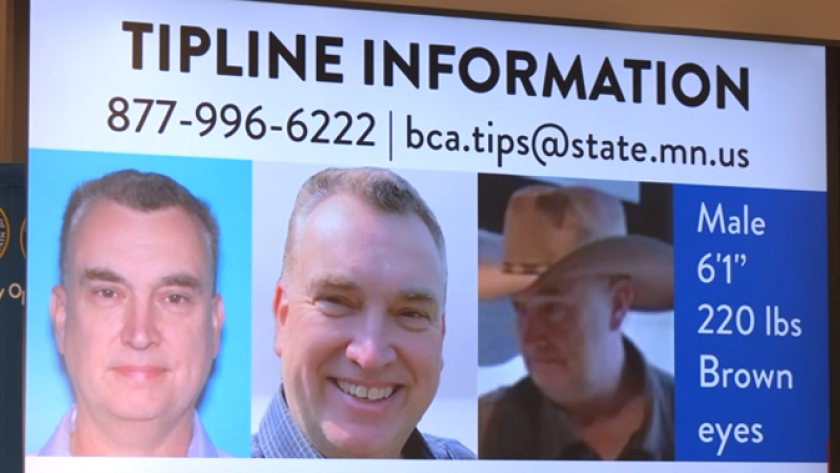ST. PAUL ÔÇö Minnesota legislative leaders said Wednesday, June 4, that theyÔÇÖre inching toward the finish line as leaders work to secure enough votes to pass budget bills and finish drafting bills.
If lawmakers donÔÇÖt finish their work by July 1, the state could go into a partial government shutdown. A first round of layoff notices was sent to state employees on June 1, warning of the shutdown possibility. Gov. Tim Walz said the second round, affecting 28,000 employees, would go out June 9, but heÔÇÖs hoping to finish work before then.
ADVERTISEMENT
ÔÇ£That causes great uncertainty for folks. I think it adds unnecessary chaos,ÔÇØ he said. ÔÇ£ItÔÇÖs still my desire, and this is a negotiated issue ÔÇĞ that that be a one-day [special] session. So it means once we come out of this room ÔÇĞ we got a day to do it. So I would tell you, itÔÇÖs my desire that this thing be buttoned up so I donÔÇÖt have to send out those notes.ÔÇØ

Walz and Speaker Emerita Melissa Hortman, DFLÔÇôBrooklyn Park, said a special session could happen soon ÔÇö possibly Saturday ÔÇö while Speaker of the House Lisa Demuth, R-Cold Spring, did not commit to a specific date, but said a special session ÔÇ£should be called soon.ÔÇØ
All leaders said significant work remains, and agreed that the budget bills for Health and Human Services, Transportation and Taxes are currently the biggest holdups. A bonding bill is still in the air, leaders said.
The transportation bill is under scrutiny after the Dakota County Board of Commissioners wrote to lawmakers Wednesday, claiming the budget agreement would divert $93 million in regional sales tax revenue for the Metropolitan Council.
The tax bill is up in the air after the chairs of the Tax Committees in the Senate and House, Sen. Ann Rest, DFL-New Hope, and Rep. Greg Davids, R-Preston, agreement that leadership released over the weekend. Davids said he would have liked to see more relief for data centers, as well as some proposals that leadership left out, such as a sustainable aviation fuel tax credit.
The Human Services budget bill comprises the second largest part of the stateÔÇÖs budget, at $24 billion, and will also be out of any budget bill this year ÔÇö $300 million. Hortman said the delay in the Health and Human Services bills is mostly due to the time-consuming process for the Office of Revisors of Statutes in drafting such a large and complex bill.
ItÔÇÖs still unclear whether the issue of repealing MinnesotaCare for undocumented adults ÔÇö a struck by Walz and leaders ÔÇö will travel in the Health budget bill or as a stand-alone bill during the special session.
ADVERTISEMENT
Leaders didnÔÇÖt confirm on Wednesday whether leaders have the votes from their caucuses to pass all of the budget bills. Hortman said the process of caucusing and securing each vote takes time ÔÇö especially when drafts are still in progress.
ÔÇ£I signed an agreement that committed my caucus to deliver votes to pass bills ÔÇĞ But weÔÇÖre not at the point where we have caucused every single bill,ÔÇØ she said. ÔÇ£You canÔÇÖt ask people will you vote for a bill until the bill is done being drafted.ÔÇØ
As lawmakers work to wrap up business, most of it is behind closed doors, as public meetings are few and far between. On Monday, there was a public meeting for the E-12 (early through high school) education budget bill, and on Thursday, there is a public meeting for the Human Services budget bill.
Beyond the regular session May 19 deadline, leaders have missed several self-imposed deadlines for finishing their work: May 26, May 29 and June 4. Senate Majority Leader Erin Murphy, DFL-St. Paul, said Wednesday lawmakers are ÔÇ£making progress ÔÇö it is as slow as molasses, but molasses is good.ÔÇØ
The budget is looking to be , roughly $5 billion less than 2023ÔÇÖs budget. Cuts are coming in heavy for the 2026-27 budget after a February forecast showed the state could be headed toward a in 2028-29.
ÔÇ£We have the closest split in any Legislature maybe ever for the tie in the House and one vote of the Senate, which means the details matter, ÔÇ£ Walz said Wednesday. ÔÇ£WeÔÇÖve been saying all along this needs to get done. We have already blown through some of the gates that needed to be accomplished, and those become much more serious as we move closer towards July 1.ÔÇØ












